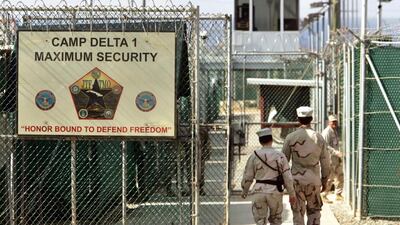Kamila Shamsie's seventh novel, Home Fire, is a contemporary take on Sophocles's Antigone that swaps the ancient Theban civil war for today's battle against Islamic fundamentalism.
In the original Greek drama, Antigone defies the law of the land in an attempt to have her brother Polynices – a rebel warrior – afforded religious burial rights.
In Shamsie's ambitious, inspired re-think, it is citizenship itself that is under threat as a sister struggles to repatriate her dead brother's body so she can bury him on British soil.
Sophocles's lawmaking King Creon becomes Karamat Lone, a British Muslim home secretary calling on his brothers and sisters to reject what he describes as their "outdated codes of behaviour" and instead embrace conformity within a "multi-ethnic, multi-religious, multitudinous United Kingdom".
When the story begins, 28-year-old Isma is heading to Massachusetts to pursue a long-put-off doctorate.
Hardest of all to leave behind is her younger sister, Aneeka, a beautiful, headstrong 19-year-old law student in London.
"You know you don't have to be so compliant about everything," the younger girl says when the siblings role-play airport security questions prior to Isma leaving. "For instance, if they ask you about the Queen, just say: 'As an Asian, I have to admire her colour palette.' It's important to show at least a tiny bit of contempt for the whole process."
But even after four hours in an interrogation room, the contents of her suitcase carelessly discarded in a jumbled heap on the table in front of her – "the officer took hold of every item of Isma's clothing and ran it between her thumb and fingers, not so much searching for hidden pockets as judging the quality of the material" – and now having missed her flight, the ever-reasonable Isma keeps her cool.
It's only the fourth page of the book, but Shamsie draws a sharp distinction between the two sisters, setting the scene for the action that follows.
_____________________
Read more:
Book world hopes for literary breakthrough in autumn
Fall into a good book: autumn reads
Book review: Escape from Baghdad! showcases best of Saad Hossain's imagination
_____________________
Aneeka, the hijab-wearing Antigone of this tale, "knew everything about her rights and nothing about the fragility of her place in the world".
Before the narrative is through, she will have this naïveté thrown angrily in her face – didn't she stop and think about how her rash actions would affect others, an irate cousin in Karachi asks her? – "those of us with passports that look like toilet paper to the rest of the world, who spend our whole lives being so careful we don't give anyone a reason to reject our visa applications. Don't stand next to this guy, don't follow that guy on Twitter, don't download that Noam Chomsky book".
By then, though, it's too late. What's done is done, and Aneeka's fate is set. Isma was right to worry about making it through airport security; travel to the United States isn't a given when your father was a jihadist who died during his transportation to Guantanamo, and your brother has followed in his footsteps, fleeing his family in London to join ISIL in Syria.
The Polynices of Shamsie's story, Parvaiz's betrayal of his country, is the pivot around which the entire plot hinges, which is why it is a shame it is the novel's weakest link.
His radicalisation is presented as a clichéd story of parental absence transformed into veneration via emotional impoverishment that, if we're to trust what we have been told about the selfless role Isma took in bringing up her younger siblings after their parents' deaths, not to mention the closeness of the bond between Parvaiz and his twin Aneeka, doesn't quite ring true.
Elsewhere, however, the novel shines, especially when it comes to Shamsie's ability to transition between the intimacy of small-scale family drama and the broader all-encompassing canvas of a Greek epic.
We get our first taste of this early on, when Aneeka discovers Isma has reported Parvaiz to the police. For Aneeka, it's this disloyalty that cuts the deepest, far more than what she's regarding as an ill-judged, soon-to-be-regretted mistake on their brother's part. "He's my twin. He's me. But you, you're not our sister anymore," she spits angrily at Isma, before severing all contact between them.
An exciting and eminently worthy inclusion on this year's Man Booker Prize longlist, from its clever beginning to the majesty of its final scene – one of the most shocking and moving I have read in a long time – Home Fire is a bold, thoughtful take on the relationships between society, politics, family and faith in a fractured and dangerous world.

